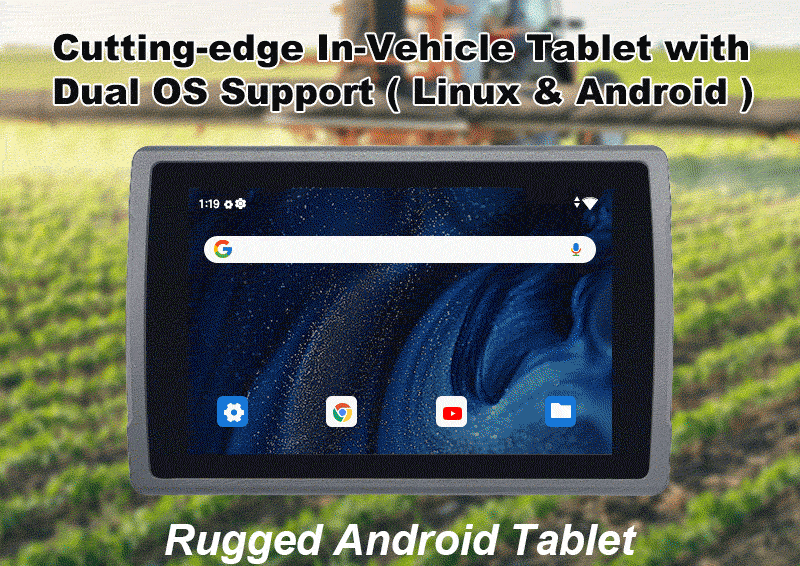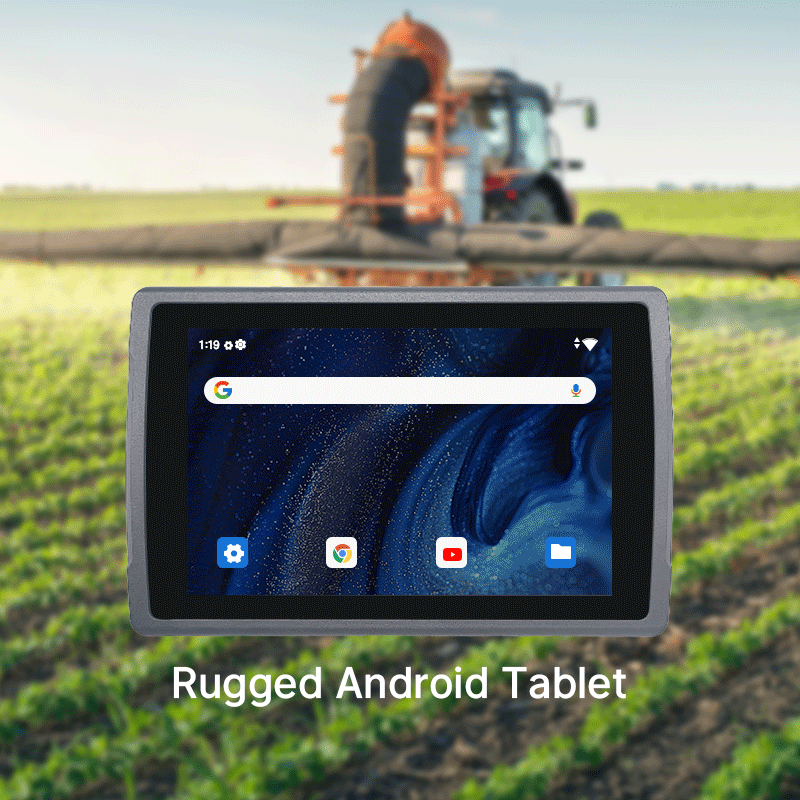Rugged tablets have become essential in industries that demand durability and performance in extreme environments. Among these, rugged Linux tablets stand out for their reliability, adaptability, and open-source flexibility. This article explores why rugged Linux tablets are a preferred choice and how they cater to the needs of industries like transportation, construction, and logistics.
What Is a Rugged Linux Tablet?
Rugged Linux tablets are purpose-built computing devices designed to endure and perform in challenging environments. These tablets combine the robustness of rugged hardware with the flexibility of the Linux operating system, making them an invaluable tool for industries that require reliability in extreme conditions.

Key Features:
- Durable Build: Equipped with MIL-STD-810G or similar certifications, these tablets are resistant to water, dust, vibrations, and accidental drops, ensuring uninterrupted operation in harsh settings.
- Linux OS: The Linux operating system offers unmatched stability and is highly customizable, enabling industries to tailor software configurations to their exact needs.
- Extended Battery Life: Built for long shifts and remote environments, these tablets often include high-capacity batteries that can last for an entire workday or longer.
- High-Performance Hardware: They are powered by modern processors, sufficient RAM, and storage to handle demanding applications like data analysis, machine control, or GPS mapping.
Whether mounted on a vehicle, carried by field workers, or stationed in a warehouse, rugged Linux tablets are built to endure tough environments without compromising on functionality.
Benefits of Rugged Linux Tablets
Rugged Linux tablets are not only about surviving harsh conditions but also excelling in performance, adaptability, and cost efficiency. Here’s why they are an excellent choice across industries:
1. Durability in Challenging Conditions
These tablets thrive in extreme environments, including:
- Extreme Temperatures: From icy warehouses to scorching desert sites.
- Impact Resistance: Protected against drops, shocks, and constant movement.
- Environmental Resilience: Fully sealed against water, dust, and debris, ensuring reliable operation in outdoor and industrial spaces.
2. Open-Source Flexibility
Linux’s open-source nature empowers businesses to customize software to their unique requirements. Whether it’s integrating industry-specific tools or optimizing resource usage, the possibilities are endless. Additionally, Linux eliminates licensing fees, reducing overall software costs.
3. Enhanced Security
Linux is well-known for its robust security architecture. With minimal vulnerabilities and active community support, businesses can protect sensitive data against cyber threats. Plus, the ability to implement tailored security protocols ensures even greater protection.
4. Versatile Functionality
From running diagnostic software to managing large databases, rugged Linux tablets are compatible with numerous industry-specific applications. Their modular design often includes options for barcode scanners, GPS, and NFC, making them even more versatile.
With such extensive benefits, rugged Linux tablets are more than just a durable device—they’re a powerhouse of innovation and adaptability.

Use Cases Across Industries
Rugged Linux tablets are highly versatile, with applications across various industries where reliability and performance are critical. Here are some examples:
Transportation and Logistics
In the transportation industry, rugged Linux tablets are the backbone of efficiency:
- Fleet Management: Monitor vehicle performance and track maintenance schedules.
- Real-Time Tracking: Provide up-to-the-minute updates on shipments and delivery routes.
- Driver Communication: Enable instant, secure communication between drivers and dispatchers.
Construction and Mining
Operating in demanding environments is no challenge for rugged Linux tablets:
- Data Collection: Record site measurements and project data in real time.
- Equipment Monitoring: Manage heavy machinery performance and diagnostics remotely.
- Blueprint Access: Access and edit complex architectural plans directly on the device.
Agriculture
Agricultural operations benefit from the versatility of rugged Linux tablets:
- Precision Farming: Use GPS and soil sensors to enhance crop yields.
- Weather Monitoring: Stay updated on weather changes critical to farming schedules.
- Inventory Management: Track livestock or equipment inventory efficiently.
Public Safety
Emergency services rely on rugged Linux tablets for swift, dependable operations:
- Police: Access crime databases and track vehicles during high-speed chases.
- Fire Departments: Plan firefighting strategies with interactive maps.
- EMS: Store and retrieve critical patient data during emergencies.
By bridging the gap between rugged hardware and the power of Linux, these tablets deliver unparalleled reliability and functionality in even the most demanding environments.
Conclusion
Rugged Linux tablets are transforming industries by providing a durable, adaptable, and cost-effective solution for complex operations. With their open-source flexibility and resilience, they are becoming an indispensable tool for mobile workforces. If your business operates in challenging environments, investing in a rugged Linux tablet could be a game-changer.
FAQs
Q: What makes Linux better than other OS options for rugged tablets?
A: Linux provides unmatched stability, customizability, and security, making it ideal for industries that require tailored solutions.
Q: Can rugged Linux tablets run other software platforms?
A: Yes, they can support a wide range of software applications and can even run virtual machines for additional flexibility.
Q: Are rugged Linux tablets expensive?
A: While the upfront cost may be higher, their durability, lower software expenses, and extended lifecycle make them cost-effective in the long run.
link:https://www.waysion.com/blog/rugged-linux-tablets-for-industrial-use-2024/
评论
发表评论